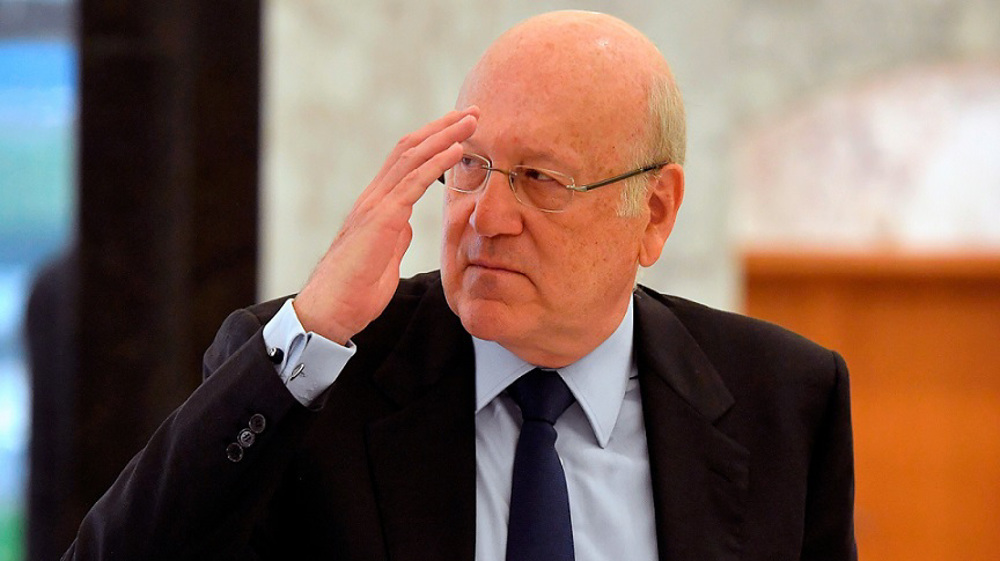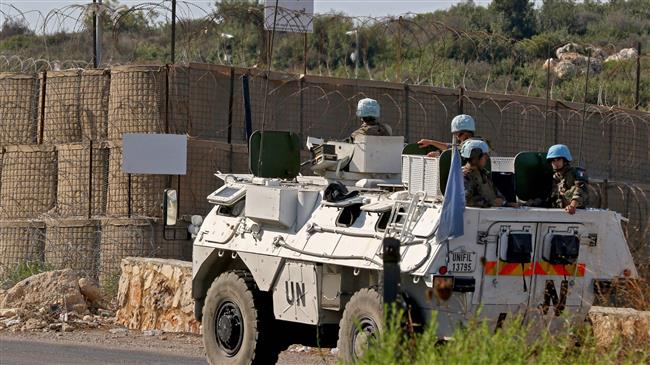Lebanon’s deepening financial crisis due to Washington’s, agents’ policies: Hezbollah official
A senior official from Lebanon’s Hezbollah resistance movement has held the United States and its agents responsible for the deteriorating financial and economic crisis in the cash-strapped Arab country.
“The ongoing economic turmoil, which the Lebanese nation is undergoing, is the outcome of several factors. It all started with the American project in September 2001, and seeks [to ensure] protection of the Israeli regime as its main objective,” Lebanon’s Arabic-language al-Ahed news website quoted Sheikh Hassan al-Baghdadi, a member of Hezbollah's Central Council, as saying.
He added, “When Americans failed to overthrow regional establishments and disintegrate them through wars, they once again resorted to economic sanctions and siege. The so-called October 17 Revolution was triggered by a bunch of corrupt elements under the supervision of the US Embassy [in Beirut]. It was the beginning of Lebanon’s financial collapse. The situation worsened as time went by and worried people about the future.”
The high-ranking Hezbollah official stated that such a policy pushed Lebanon to the edge of an abyss, and prompted the Israeli regime to wishfully think the equation of deterrence would vanish in the wake of Lebanon's turmoil.
Baghdadi, however, noted that Hezbollah maintains its full readiness in the face of such threats.
The Lebanese resistance movement’s recent retaliation against Israeli shelling and airstrikes on southern Lebanon with a rocket barrage attested to the defeat of the enemy's aggressive policy, and ascertained that the occupying regime will not last long, he said.
“Enemies have not and will not understand Hezbollah’s nature as the resistance movement adapts itself to developments, and has so far managed to thwart all conspiracies,” Baghdadi concluded.
Lebanon has been mired since late 2019 in a deep economic and financial crisis, exacerbated by a political deadlock.
The economic and financial crisis is the gravest threat to the country’s stability since the 15-year civil war ended in 1990.
The crisis is mostly linked to the sanctions that the United States and its allies have imposed on Lebanon as well as foreign intervention in the Arab nation’s domestic affairs.
According to Hicham Safieddine, a lecturer on the history of the modern Middle East at King’s College London, US sanctions involving Lebanon “have seriously undermined the stability of the banking sector by creating a chilling effect, and reduced the inflow of foreign capital."
Compounding the woes, Saudi Arabia has imposed its own sanctions, including banning its citizens from traveling to Lebanon where Riyadh-backed elements have been jockeying for position.
Last April, Saudi Arabia announced the suspension of fruit and vegetable imports from Lebanon, claiming shipments were being used for drug smuggling.
Nasser Qandil, editor-in-chief of Lebanon's al-Binaa newspaper, told Press TV at the time that the actual reason behind the prohibition was “political motivation,” saying if Riyadh actually wanted to fight drug trafficking it could easily act through its ambassador in Beirut and contact the relevant Lebanese officials.
‘Ghost town’: 70% of Jabalia buildings destroyed by Israel
Mother’s Day: Sareh Javanmardi’s inspiring journey as Paralympic champion and mother
Russia downs over 40 Ukrainian drones as Putin vows 'destruction' on Kiev
VIDEO | Yemen: A bone in Israeli neck
D-8’s role in Iran’s economy after Cairo summit
China slams US as ‘war-addicted’ threat to global security
China ‘firmly opposes’ US military aid to Taiwan
VIDEO | Press TV's News Headlines



















 This makes it easy to access the Press TV website
This makes it easy to access the Press TV website